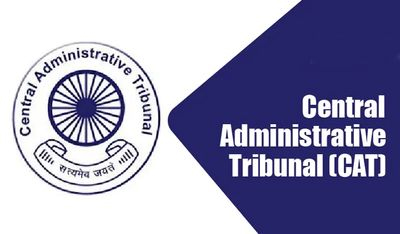 Early Times Report Early Times Report
Jammu, July 14: A Bench of Central Administrative Tribunal Rajinder Dogra and Ram Mohan Johri stayed the the operation of the relevant provisions of the Jammu and Kashmir Revenue (Subordinate) Service Recruitment Rules of 2009, insofar as they mandate Graduation with knowledge of Urdu as the minimum qualification for the post of Naib Tehsildar.
CAT further directed the Jammu and Kashmir Services Selection Recruitment Board (SSRB) to accept applications for the post of Naib Tehsildar from candidates who possess Graduation with knowledge of any of the five official languages enumerated in the Jammu and Kashmir Official Languages Act, 2020, which includes Hindi, Kashmiri, English, Dogri, and Urdu.
This landmark order has been passed in petition filed by Rajesh Singh & Ors.
CAT after hearing Sr. Advocate Abhinav Sharma with Adv Abhirash Sharma who have sought a declaration that the Jammu and Kashmir Revenue (Subordinate) Service Recruitment Rules of 2009, to the extent it stipulates that a candidate must possess Graduation with knowledge of Urdu as the minimum qualification for the post of Naib Tehsildar, is ultra vires the Constitution of India. The petitioners contend that this requirement discriminates against those who possess knowledge of other official languages recognized under the Jammu and Kashmir Official Languages Act, 2020, such as Hindi, Kashmiri, English, and Dogri, thereby violating the principles of equality and non-discrimination enshrined in the Constitution.
During the course of hearing Sr. Adv Abhinav Sharma submitted that the applicants have further expressed their grievance with regard to the impugned advertisement notification No. 05 of 2025, dated 09.06.2025, wherein the minimum qualification for the post of Naib Tehsildar is once again restricted to Graduation with knowledge of Urdu. He further submitted that this restriction unfairly excludes individuals who possess proficiency in any of the other official languages, including Hindi, Kashmiri, English, and Dogri, and thereby impedes their eligibility to apply for the said post in the Union Territory of Jammu and Kashmir.
The applicants have also sought appropriate directions from this Court restraining the respondents from cancelling the candidature of individuals, including the petitioners, for the post of Naib Tehsildar solely on the ground that they do not possess knowledge of Urdu, despite their proficiency in Hindi, Kashmiri, English, and Dogri, all of which are recognized under the Jammu and Kashmir Official Languages Act, 2020. It is the petitioners' contention that such a restriction is arbitrary and discriminatory, as the Act recognizes multiple languages as official languages of the Union Territory.
CAT after hearing Sr. Advocate Abhinav Sharma with Adv Abhirash Sharma for the applicants whereas AAGs Rajesh Thappa, Sudesh Magotra and Deputy AG Hunar Gupta for the UT, observed that this Court is of the considered view that the provisions of the Jammu and Kashmir Revenue (Subordinate) Service Recruitment Rules of 2009, to the extent it mandates Urdu as the exclusive language qualification, prima facie appears to be discriminatory, especially in light of the provisions of the Jammu and Kashmir Official Languages Act, 2020. In light of the above, this Court hereby stays the operation of the relevant provisions of the Jammu and Kashmir Revenue (Subordinate) Service Recruitment Rules of 2009, insofar as they mandate Graduation with knowledge of Urdu as the minimum qualification for the post of Naib Tehsildar. Further, the Jammu and Kashmir Services Selection Recruitment Board (SSRB) is directed to accept applications for the post of Naib Tehsildar from candidates who possess Graduation with knowledge of any of the five official languages enumerated in the Jammu and Kashmir Official Languages Act, 2020, which includes Hindi, Kashmiri, English, Dogri, and Urdu.
CAT also issued notices to the respondents, who are directed to file their reply within four weeks from the date of this order and directed to list this matter on August 13, 2025. (JNF) |
